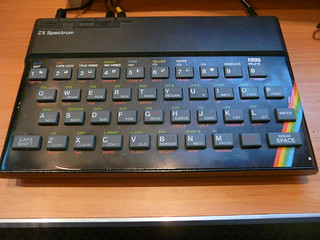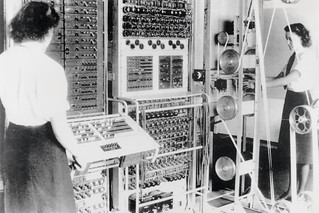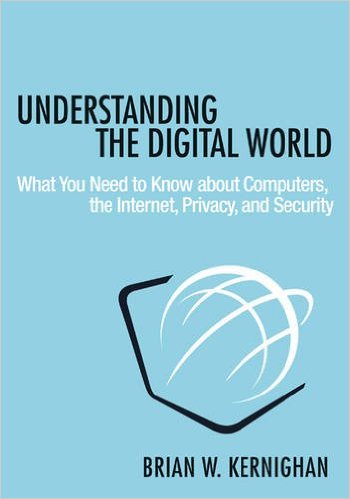What's worse than being governed by algorithms? Not even knowing what the algorithm is doing. This very timely and readable book lifts the lid of what goes on in many walks of life.
Read MoreGetting the most out of education conferences
This book has received 22 five star reviews in total so far, and is the TESOL Institute's featured book. Read on for more information, and for details on how you can buy a personalised version.
Read MoreWhat I've been reading: The Art of People
One of the most fundamental of so-called '21st century skills' is surely knowing how to interact with other people. This book contains some interesting strategies, though I am not sure all of them will work in the UK!
Read MoreFake news, the great training robbery and a bunch of other stuff
The next issue of the Digital Education will soon be out. Here's a brief guide to what's in it.
Read MoreDroning on: Review of Drones in Education
What a fascinating idea: using drones as part of the curriculum. This book tells you much of what you need to know.
Read MoreHow to get the most out of ISTE17 (and other conferences)
Listen to my interview with Vicki Davis about how to get the most out of #iste17 and other conferences -- and grab my book for £0.99/$0.99 or equivalent (plus VAT if applicable) -- a third of its usual price.
Read MoreWhat I've been reading: Everyday Sexism
I’ve just read Everyday Sexism [Amazon affiliate link] by Laura Bates. Before I go any further, I suppose I ought to explain why. What does this subject matter have to do with teaching computing and ICT?
Well, I don't think there can be any doubt about the fact that a lot of girls are put off going into computing, whether as a course in school or in their career choices. So I wondered how far the kinds of issues girls face in school, especially in subjects like computing which are seen by too many people as a male preserve, are part of a wider picture.
In many respects this book is pretty depressing. It's bad enough that grown women have to put up with unwanted attention, but children?!
I think girls and women would find the book useful, to help them realise that lots of others experience the same kind of thing. I think boys and men should read it too, to find out how it must feel to be on the receiving end of sexist comments.
One of the things that struck me was the complaint that male teachers say things like, "Come on, you don't want to be beaten by a girl do you?". I can see why girls would feel belittled by that sort of remark, even if it was intended as a lighthearted means of galvanising the boys into making a greater effort.
I remember doing the opposite: saying to the boys in my Computing class that I'd like them to be quiet and let the girls answer, as I'd rather listen to a well-thought out response than some half-baked comment shouted across the room. Was that unacceptable too, do you think?
Most of the book might be described as 'relentless': wave after wave of intrusive and even threatening comments. For me, the best chapter is the last one, because it portrays women as strong and powerful rather than as almost powerless victims.
In this context you might like to read my article, Where are the girls in ICT and Computing?
The book reviewer's desk, by Terry Freedman. For more book reviews, sign up to Digital Education, where this review first appeared.
Like to receive information about my newly-published books, and occasional special offers? Just sign up to my newsletter, Digital Education:
The importance of reading in education technology: 3 books to read and recommend
Why background reading and reading around the subject are good things to do, plus three books I recommend for students (and teachers).
Read MoreGetting the most out of Education Conferences -- now available on Kobo!
Information about my ebook, Education Conferences, plus where to buy it on Kobo.
Read MoreThe Editor at work
Digital Education: what's in the latest issue?
Assessment, Book reviews, Ofsted: just three of the topics covered in the latest issue of our newsletter, Digital Education.
Read MoreBooks erratum
In a recent article I said that a particular book was my first 'proper' book -- and then I remembered the previous half dozen or so! This article sets the record straight.
Read MoreThe What Works Conference
Alongside the London Book Fair is the What Works education conference. As you may have surmised from its proximity to the LBF, it focuses on educational publishing.
Read MoreThe book is available as an iBook or a PDF
What I've been reading: Thinking Critically with Digital Media
This book by Nik Peachey is an excellent resource book for teachers of media and digital literacy.
Read MoreSo what makes you think I love reading? Photo by Glen Noble.
What I'm reading: books on digital literacy and Raspberry Pi
Three more books coming up for review -- on the subjects of the Raspberri Pi and digital literacy.
Read MoreA very readable book.
What I'm reading: Understanding the Digital World: What You Need to Know about Computers, the Internet, Privacy, and Security
My first impressions of a new book about computers, networks and data.
Read MoreMy first Kindle book!
What's in "Education Conferences: Teachers' Guide to Getting the Most out of Education Conferences"?
Why did I write this book, and what does it contain? Here's a list of the table of contents, and a short extract. I must have got something right, because so far it's received seventeen 5 star reviews on Amazon. I'm holding the price at £0.99/$0.99 for a short while longer.
Read MoreWhat I've been reading: So you've been publicly shamed
A harrowing, but very readable, account of how public shaming affects the victims.
Read MoreEducation Conferences: my new book
I've written and self-published a guide to getting the most out of education conferences -- including how to increase your chances of being allowed to attend in the first place. Find out more by clicking on the title of this post.
Read MoreWhat I've been reading: Thinking Machines
A really engaging exploration into the development of AI and the problems it has had to grapple with.
Read MoreWhat I've been reading: Digital Literacy Skills for FE Teachers
Although this book is aimed squarely at teachers in Further Education, I think it would be a useful resource for school teachers too, and even university lecturers.
Read More




















"As soon as I found out about how to write code, I was hooked. I realised that this was what I should have been doing all along." Anna Shipman, who works for the Government Digital Service, talks about her love of coding.